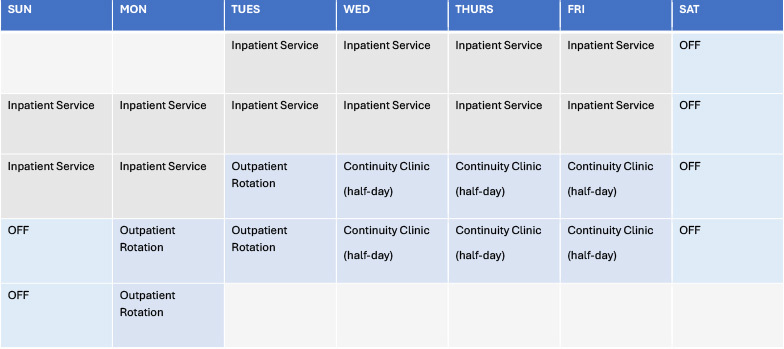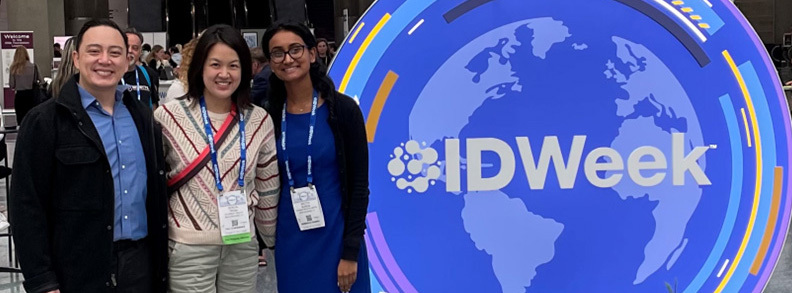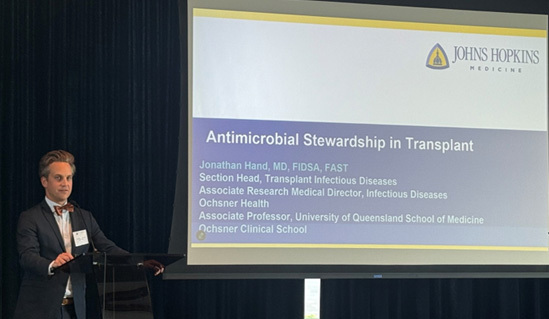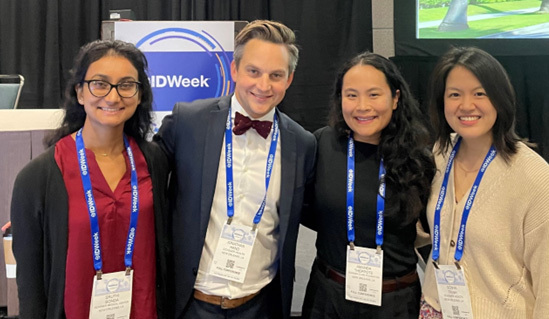Ochsner Health is a system that delivers health to the people of Louisiana, Mississippi and the Gulf South with a mission to Serve, Heal, Lead, Educate and Innovate.
Educational & Clinical Experience - Infectious Diseases Fellowship Program
Over the two-year Infectious Diseases training program, fellows rotate between inpatient service and outpatient electives every two-weeks.
Four-Week Block Structure

Inpatient services are conducted at the Ochsner Medical Center Main Campus with University of Queensland Medical Students, Internal Medicine Residents, Infectious Diseases pharmacists, and a PGY-2 Infectious Diseases Pharmacy Resident.
Fellows rotate through three inpatient teaching services:
General Infectious Diseases Pankey Service
The Pankey Service offers fellows a diverse experience that involves consultations from multiple disciplines. Virtually all aspects of infectious diseases are encountered on this service including HIV/advanced-HIV, travel-related infections, and post-surgical infections.
Critical Care Infectious Diseases Service
Fellows work closely with the Critical Care teams on the four Intensive Care Units: Cardiac ICU, Medical ICU, Neurosciences ICU, and Surgical ICU. Fellows learn the challenges of antimicrobial stewardship in the ICU setting.
Immunocompromised Host Service
Fellows learn how to prevent and treat infections in immunocompromised hosts including solid organ transplant recipients, hematopoietic stem cell recipients, and patients receiving chemotherapy or biologic therapy.

During the two-week outpatient block, fellows have two half-days of Continuity Clinic where they gain experience in the longitudinal management of a host of infectious diseases including HIV and infections requiring outpatient antibiotic therapy.
The outpatient clinic will include Travel and Tropical Medicine visits. Fellows will learn how to provide pre-travel and vaccine counseling as well as evaluate patients presenting with symptoms post-trave
The remainder of the outpatient block is spent on outpatient rotations tailored to the fellow’s long-term career goals. Over the two-year period, fellows complete five required outpatient rotations to develop a strong foundation in the Core Concepts of Infectious Diseases.

Clinical Microbiology Rotation
This four-week rotation serves as an introduction to routine as well as advanced molecular and immunologic methods currently employed in the diagnosis of bacterial, fungal, mycobacterial, viral and parasitic infections.
Antimicrobial Stewardship Rotation
Our fellows work with the System Antimicrobial Stewardship Team to identify, resolve, and prevent drug-related problems in patients receiving antimicrobials. The fellow will conduct surveillance activities to promote the rational, safe, and cost-effective use of antimicrobials. The fellow will gain valuable experience in developing educational strategies, updating formulary and health-system policies, analyzing health information systems, and designing initiatives and programs to improve antimicrobial usage.
Infection Control and Prevention
Our fellows work with the Medical Director and Infection Preventionists to develop an understanding on the development and implementation of system-wide policies for preventing and tracking hospital-acquired infections.
Hepatitis C Clinic
Fellows rotating through Hepatology clinic will gain expertise in the evaluation, management and treatment of patients with hepatitis C.
Wound Care Clinic
Fellows rotating through Wound Care Clinic will learn about advanced technologies and treatments for chronic ulceractions, slow-healing wounds, and various surgical problems.

Additional outpatient rotations to choose from based on fellow interest include:
- Ochsner Long-Term Care Facility
- Dermatology Clinic
- Pediatric Infectious Diseases
- Diploma Course for CTropMed Certification
- Away rotations at MD Anderson, National Jewish Health
- International rotations to India, Jamaica, and Peru

Ochsner Faculty, guest faculty, and fellows participate in the Infectious Diseases conference.
Weekly
- Monday Journal Club
- Thursday Board Review
- Friday Case Conference
Monthly
- Micro Rounds
Quarterly
- Joint Internal Medicine and Infectious Diseases Conference
- Citywide Conference with Tulane, LSU, and Children’s Hospital
- Southeastern Transplant Infectious Diseases Conference
Second Year
- Stipend provided to attend ID Week
Areas of active basic science, translational, and clinical Infectious Diseases research include:
- Antimicrobial Stewardship: Provider Reports, Best Practice Alerts
- Basic Science: Antibiotic Synergy for Multi-Drug Resistant Organisms
- HIV: PreP among Racially Diverse Trans-Women in the Deep South
- Transplantation: HOPE in Action, Fungal Infections, Antibiotic Stewardship, Diagnostic Stewardship



